A tanker trailer is a specialized type of semi-trailer designed to transport liquid, gaseous, or bulk dry materials. These trailers are essential in industries such as petroleum, chemical manufacturing, agriculture, and food processing. They are engineered to safely and efficiently move substances like fuel, water, chemicals, food-grade liquids, and dry bulk commodities over long distances. In this article, we will explore the various types of tanker trailers, their construction, applications, safety features, and regulatory considerations.
Types of Tanker Trailers
Tanker trailers come in different designs and configurations depending on the type of cargo they carry. The main categories include:
1. Fuel Tanker Trailers
Fuel tanker trailers transport petroleum-based products such as gasoline, diesel, and jet fuel. They are typically made from aluminum or stainless steel and are equipped with multiple compartments to carry different fuel grades. These trailers often feature vapor recovery systems to reduce emissions and prevent contamination.
2. Chemical Tanker Trailers
Designed to transport hazardous and non-hazardous chemicals, chemical tanker trailers are constructed from corrosion-resistant materials such as stainless steel, fiberglass-reinforced plastic (FRP), or lined carbon steel. These trailers often have special coatings to prevent chemical reactions and ensure cargo integrity.
3. Food-Grade Tanker Trailers
Food-grade tanker trailers transport edible liquids like milk, juice, vegetable oils, and liquid sweeteners. These trailers are typically made of stainless steel to maintain sanitary conditions and are designed with smooth, easy-to-clean interiors. Many are insulated to keep the contents at the required temperature.
4. Water Tanker Trailers
Water tanker trailers transport potable and non-potable water for agricultural, construction, and emergency relief applications. They can be made of steel, aluminum, or polyethylene and may include features such as baffles to reduce sloshing.
5. Asphalt Tanker Trailers
These trailers transport hot liquid asphalt used in road construction and maintenance. They have insulated walls and heating systems to maintain the temperature of the asphalt during transit.
6. Dry Bulk Tanker Trailers
Dry bulk tanker trailers transport materials such as cement, sand, flour, and plastic pellets. They use pneumatic systems to unload cargo efficiently and are designed to prevent contamination and moisture ingress.
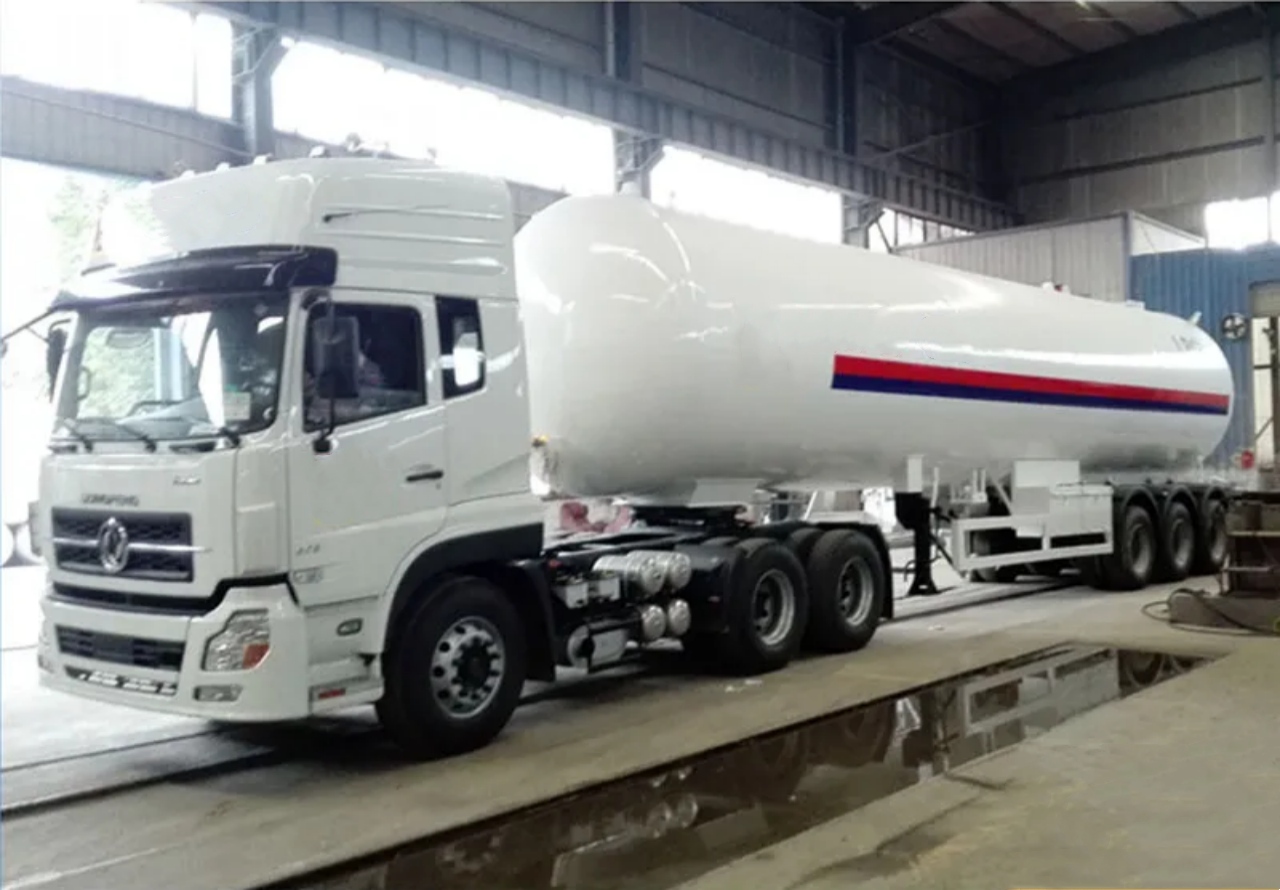
Construction and Design Features
Tanker trailers are engineered to meet the specific demands of their cargo. Some key design features include:
1. Materials Used
- Stainless Steel: Used for chemical and food-grade trailers due to its resistance to corrosion and ease of cleaning.
- Aluminum: Common in fuel tankers because of its lightweight properties and resistance to rust.
- Carbon Steel: Used for non-corrosive liquids and dry bulk materials due to its strength and durability.
2. Compartmentalization
Many tanker trailers have multiple compartments to transport different substances simultaneously. This design minimizes the risk of cross-contamination and allows for efficient delivery logistics.
3. Insulation and Heating
Certain tanker trailers, such as asphalt and food-grade tankers, require insulation and heating elements to maintain cargo temperature. These systems include steam coils, electric heating elements, and insulated walls.
4. Baffles and Surge Protection
Baffles are internal dividers that help control liquid movement within the tank. They reduce the effects of sloshing, improving stability and preventing cargo shifts that could impact vehicle handling.
5. Loading and Unloading Systems
Tanker trailers use various loading and unloading mechanisms, including top-loading, bottom-loading, and pressure-differential systems for dry bulk cargo. These systems ensure efficient, safe, and contamination-free cargo transfer.
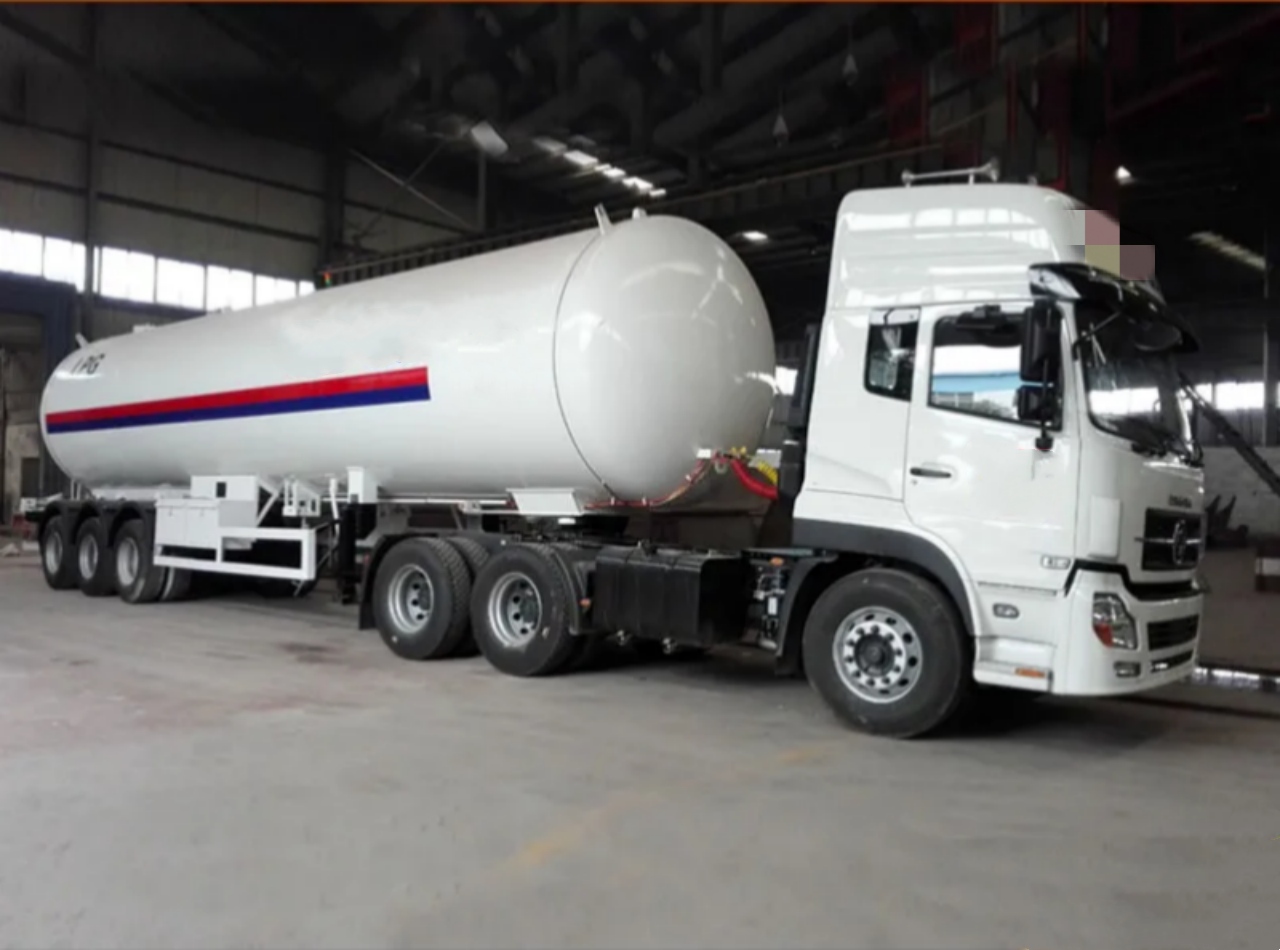
Applications of Tanker Trailers
Tanker trailers are widely used across multiple industries, including:
1. Oil and Gas Industry
- Transporting crude oil, refined petroleum products, and liquefied natural gas (LNG).
- Ensuring fuel supply to gas stations, airports, and industrial facilities.
2. Chemical Industry
- Moving hazardous and non-hazardous chemicals between manufacturing plants and distribution centers.
- Transporting acids, solvents, and industrial lubricants.
3. Food and Beverage Industry
- Delivering milk, edible oils, and beverages to processing plants and retailers.
- Transporting ingredients like liquid chocolate and corn syrup.
4. Agriculture
- Distributing liquid fertilizers and pesticides to farms.
- Transporting water for irrigation and livestock.
5. Construction Industry
- Hauling asphalt and cement for road and building projects.
- Supplying water for dust suppression and concrete mixing.
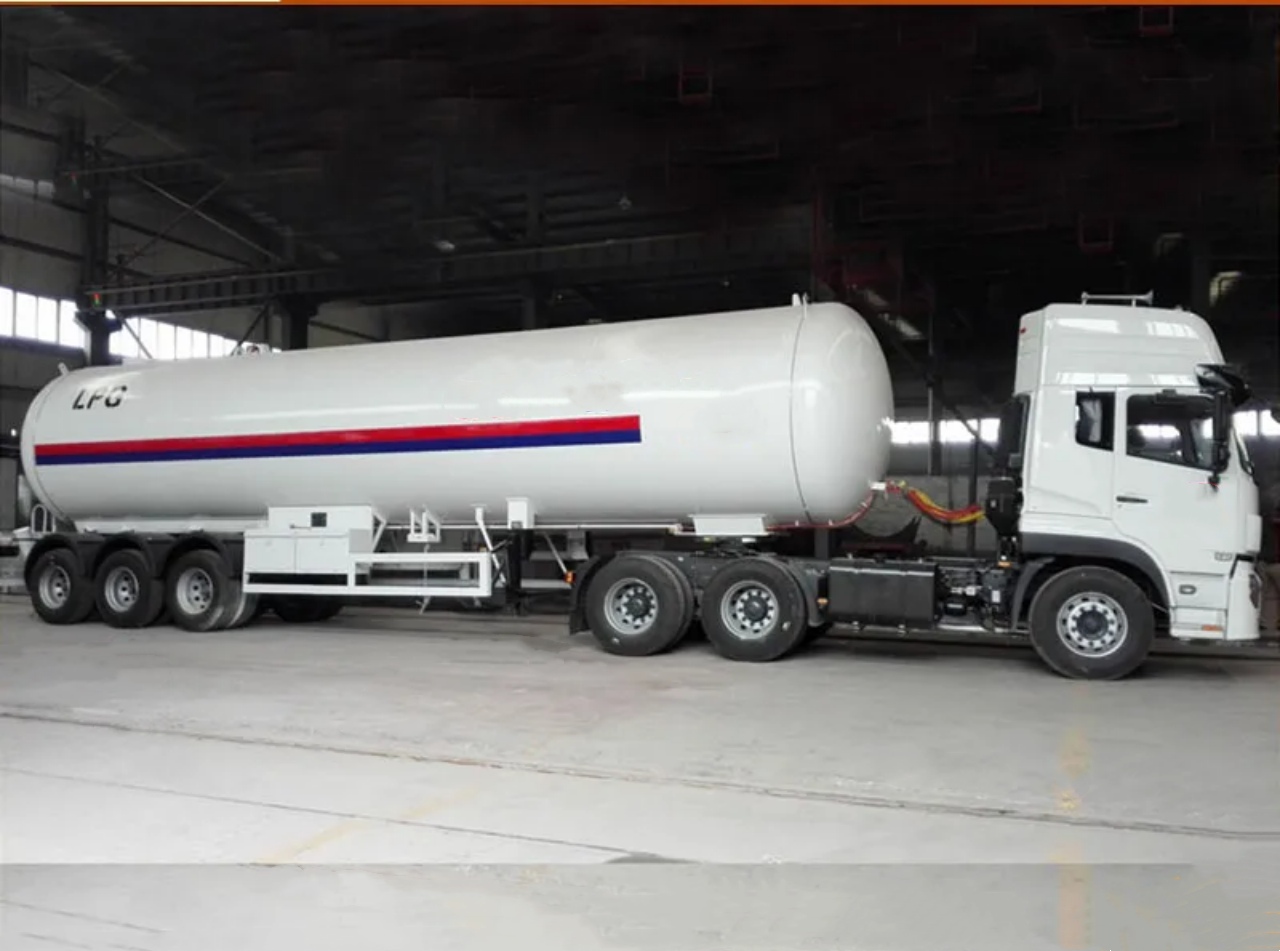
Safety Considerations for Tanker Trailers
Due to the nature of their cargo, tanker trailers are subject to strict safety regulations and require specialized handling. Key safety considerations include:
1. Spill Prevention and Containment
- Secondary containment measures, such as double-walled tanks, prevent leaks.
- Emergency shut-off valves stop spills during loading and unloading.
2. Pressure Relief Systems
- Venting systems manage internal pressure fluctuations caused by temperature changes.
- Vacuum relief valves prevent tank implosions.
3. Fire and Explosion Prevention
- Fuel tankers are equipped with anti-static bonding cables to prevent sparks.
- Some trailers feature explosion-proof fittings and grounding systems.
4. Driver Training and Certification
- Operators must undergo specialized training to handle hazardous materials safely.
- Regulations require compliance with the Hazardous Materials Regulations (HMR) and the Department of Transportation (DOT) standards.
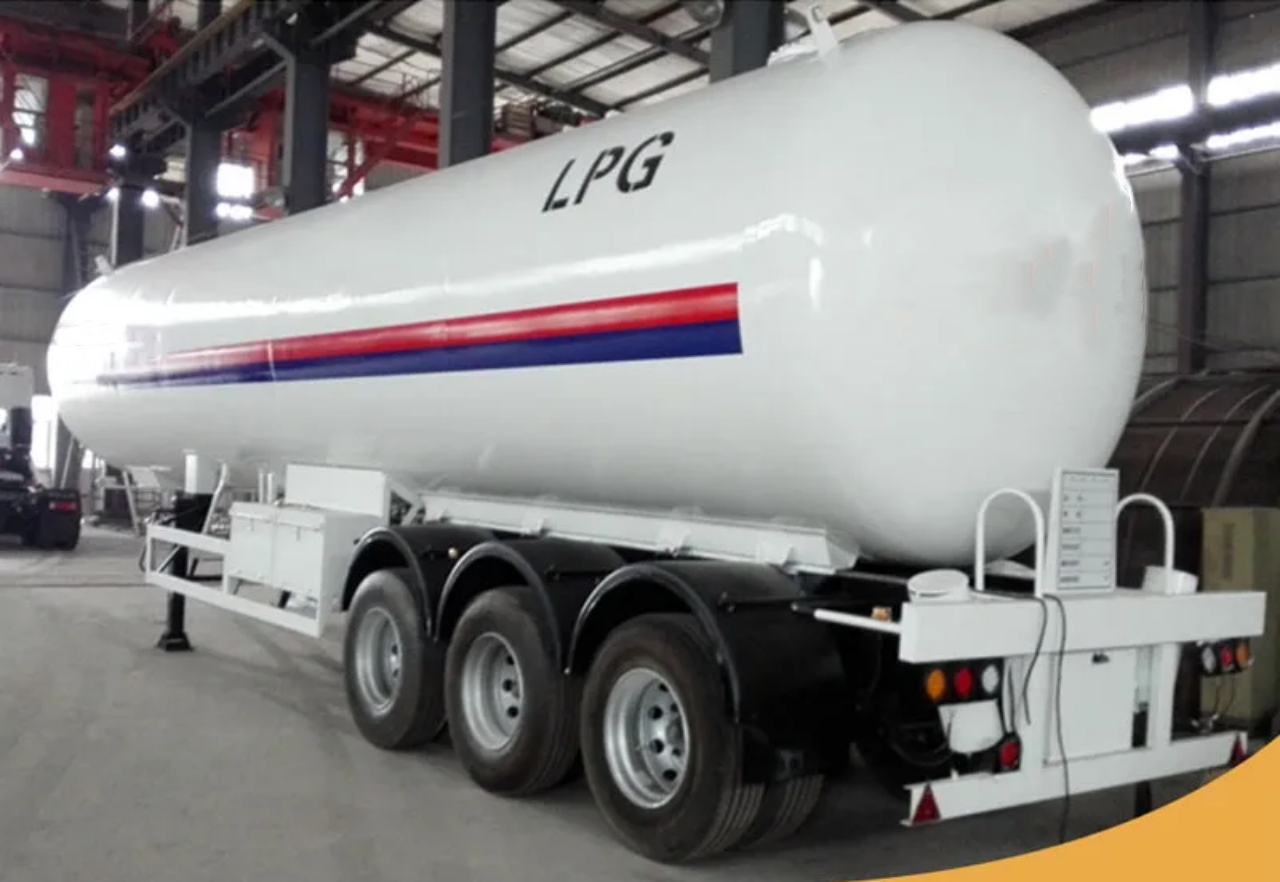
Regulatory and Compliance Requirements
Tanker trailers must adhere to various local, national, and international regulations. Some of the key governing bodies and standards include:
1. Department of Transportation (DOT) Regulations
- Specifies construction standards, weight limits, and safety features.
- Requires regular inspections and maintenance.
2. Environmental Protection Agency (EPA) Standards
- Governs emissions control and spill prevention measures.
- Enforces guidelines on vapor recovery systems for fuel tankers.
3. Food and Drug Administration (FDA) Regulations
- Oversees sanitary standards for food-grade tanker trailers.
- Requires proper cleaning and maintenance records.
4. Occupational Safety and Health Administration (OSHA) Guidelines
- Mandates workplace safety measures for tanker trailer operation and maintenance.
- Provides training requirements for handling hazardous materials.
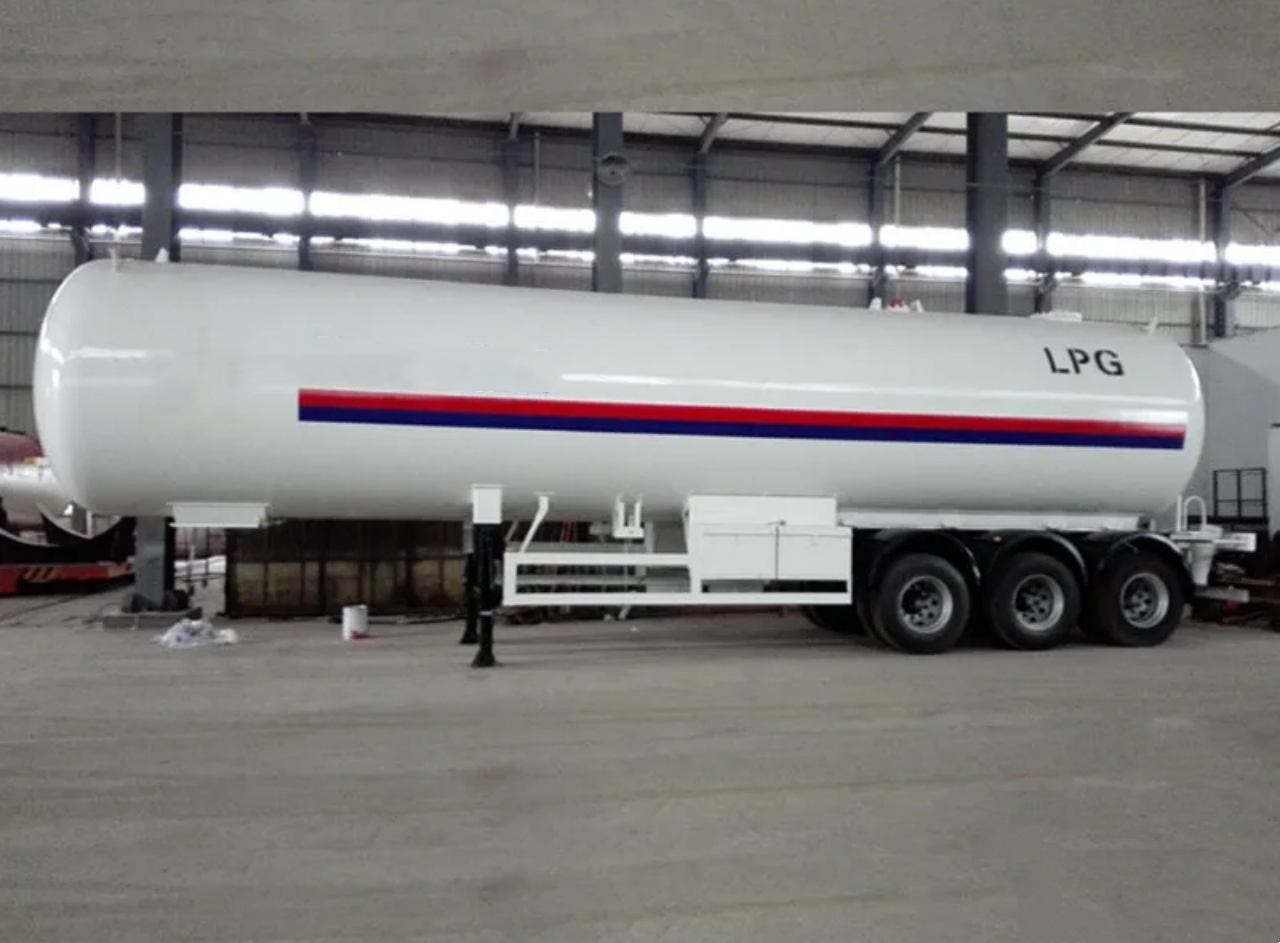
Conclusion
Tanker trailers are indispensable in modern logistics, enabling the efficient and safe transportation of liquids, gases, and dry bulk materials. Their specialized designs cater to the unique requirements of various industries, from fuel distribution to food and chemical transport. With stringent safety measures and regulatory oversight, these trailers continue to play a crucial role in global supply chains. Understanding the different types, features, and regulations associated with tanker trailers helps businesses and operators ensure safe and compliant transport operations.

